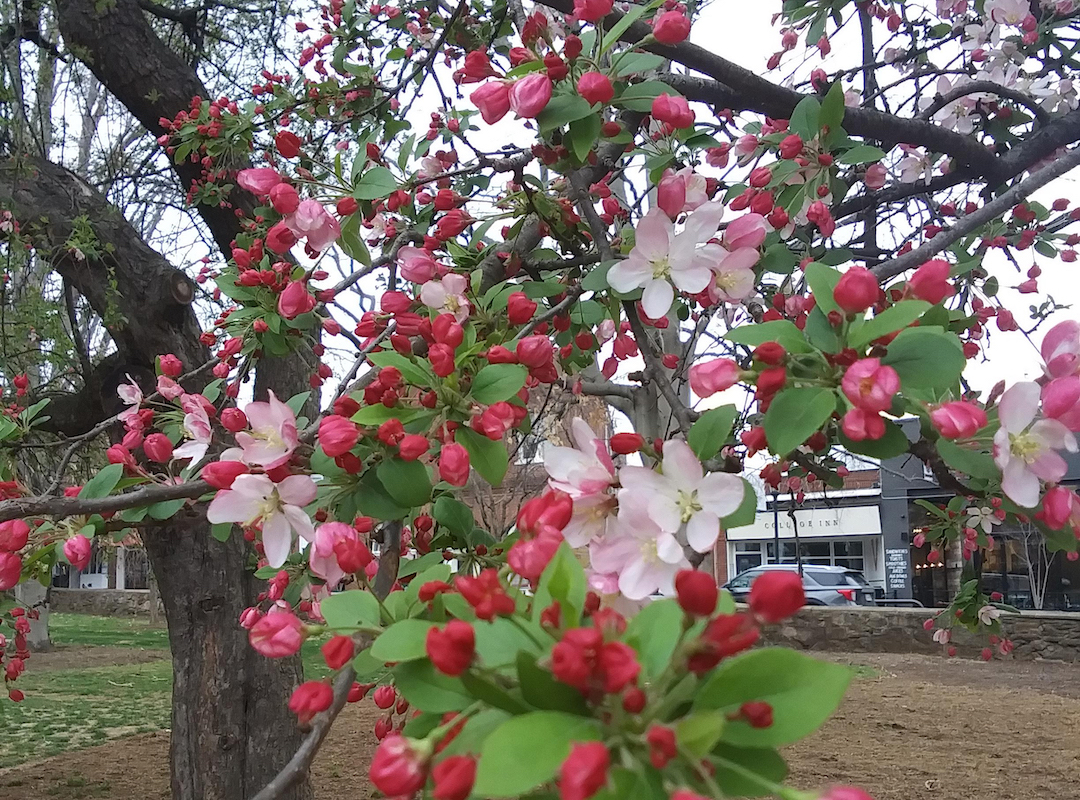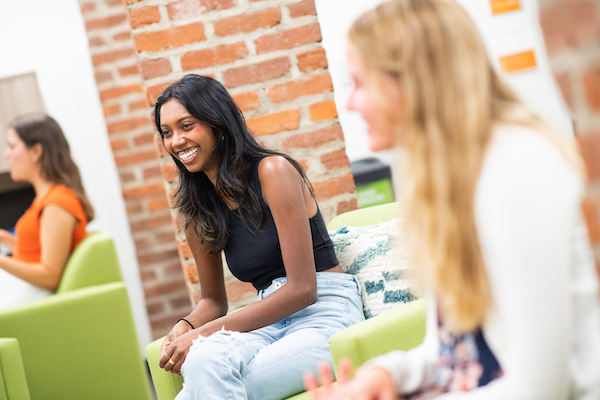
Some of you know that my husband is disabled. I usually say he “has mobility challenges” or “health issues.” He says he’s crippled. The medical reality is that he has a C4-level spinal cord injury that he incurred in a swimming accident at the Jersey Shore eight years ago. In the immediate aftermath, he spent 8 weeks in the hospital. We sought a “new normal” and, silver lining to that experience, I learned some things that I’d like to share with you.
In early March, the staff at the Women’s Center convened for an impromptu meeting to prepare for the anticipated move to online operations. I told the group that every time John falls, I have to remind the three of us that the number one rule in our house is “Don’t panic.” As recent decisions made for public safety have thrust all of us into an altered reality, we’ve all had to acknowledge that the coming few weeks/months won’t look the way we envisioned them not so long ago. But we will figure out how to proceed. So, I invoked the "don’t panic" rule here, too. I encourage you all to embrace it in your lives, too.
I’m not trying to suggest there’s nothing to worry about. Rather, that panic pushes you to less-than-optimal decisions.
As we move forward in our newly socially-distanced reality, I offer “dump up and support down” as an effective way to manage concerns. “Dump up, support down” is a modification of advice for helping people in a crisis, the Ring Theory, that I have always found very helpful. My modification of the ring theory for this situation encourages you to share feelings with people who have similar or greater levels of control over their environment (dump up) and keep interactions with those who have less control supportive of their concerns (support down the chain).
News accounts describe current events as unprecedented, and in specific particularities, they are. But we have faced challenges before. Driving home from the Women’s Center on what would turn out to be my last day working in the space for the foreseeable future, I was reminded of 9/11. In 2001, I was teaching at a private school in Princeton, and we had a number of parents who worked in NYC. In the immediate uncertainty, it was quite challenging to help the students manage their anxiety without me adding to it. That balance is always a challenge to achieve, but one I am confident we can rise to meet. We all live in community for a reason. Moments like this, when we have entered an altered reality, call us to empathy and to care for ourselves and our community members.
I do not in any way intend to minimize the losses that these moves accumulate: I can – and do – simultaneously hold sorrow for our students whose brief college years have been changed suddenly and dramatically, and concern for the safety of our healthcare workers and all in our communities who are most vulnerable. We can each take every step available to us to flatten the curve while also grieving the losses that accompany those steps.
My staff and I have also been thinking specifically about how to incorporate elements of normalcy into our new circumstances. Returning to the example of 9/11: that day, my students were in no shape to write the character analysis that was scheduled, but neither would it have been good for them if I let them watch the news throughout class as they wanted to. We pivoted and worked on an exercise diagraming sentences that gave them respite from the uncertainty and provided them a useful activity in which to engage in the moments when there was nothing that they could do other than wait to see how things out of their control would turn out.
I’m noting the varied ways that our students, alumni, and colleagues are similarly channeling their impulses to be productive in whatever ways they can. A colleague here in Charlottesville, sad that the Festival of the Book had to cancel, promptly tweeted about the books and authors featured on the panel she was to have moderated. I’ve committed to doing the same – as soon as I finish reading the books! Finding creative alternatives to necessary cancellations can help us cope with the disruptions to our daily routines that we face.
Reading being one of the greatest and simplest joys that connect humans to their world and to each other, we’ll be curating links in the Women’s Center’s communications channels (@uvawomenscenter) to bring you some of the many must-reads being written in this moment. In the weeks ahead, I’ll offer further insights about surviving in moments of crisis – including thoughts about ways we might even thrive. I’ll also be following conversations about the fissures in our social system that this crisis has exposed and that this moment offers us a collective opportunity to correct for the well-being of all in our community.
In the meantime, I’ll extend to you this simple suggestion that I offered in an email to my staff back on March 11:
I encourage you each to pick something in the near future to look forward to. I’m going to be playing a lot of Billy Joel in anticipation of this calming down by June (my daughter and I have tickets to see him play at Notre Dame Stadium in June, and we’re looking forward to what will be our family’s first trip back to South Bend since moving here…). This is also the moment that your self-care plan becomes crucial. May you each have something this evening, and each day moving forward of this altered reality, that brings you joy. Just yesterday, Wynne asked me if I was really trying to finish 20 needlepoint projects in 2020 and I laughed – no way would that happen. With enough social distancing, maybe I actually will.
While the seriousness and duration of our current situation have increased exponentially since I chose those examples, I stand by my wish for you to find small joys each day. For me, muscle-memory kicks in from when John was hospitalized. When you enter a new normal, maintaining a schedule, taking care of yourself, finding little moments that bring you joy and comfort – those are the actions that support you to endure an ongoing challenge.
So, I leave you with the hope that you will take care of yourself and be good to your community. And with an invitation to join me in a first step to finding those moments. Let’s pause for the beauty of the Colorado Orchestra playing “Ode to Joy” to transport us away momentarily.

